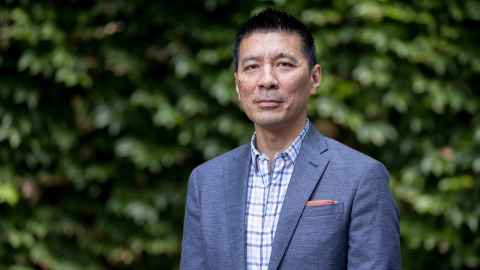Counterterrorism watchdog needed – legal expert
2 July 2025
An independent watchdog would shine a light into the shadowy world of security and counterterrorism, says Associate Professor John Ip in a research paper.

Since the 2019 Christchurch mosque attacks, New Zealand has introduced several counterterrorism laws, significantly expanding state power. Now, a legal expert says it’s time to follow the UK, Australia and Ireland in appointing an independent watchdog to keep that power in check.
In his paper, ‘The case for an independent reviewer of counterterrorism legislation in New Zealand,’ University of Auckland Law Associate Professor, John Ip, says although necessary, counterterrorism legislation often lacks provision for ongoing oversight.
Counterterrorism legislation, says Ip, is characterised by a government’s need to react to an incident decisively and quickly, leaving little time for public input, legislative deliberation or scrutiny. Once on the books, counterterrorism legislation is rarely repealed and difficult to ratchet back.
“This makes scrutiny and oversight essential, especially given the potential impact on individual rights and freedoms.”
Since 2019, New Zealand has introduced counterterrorism legislation including the Terrorism Suppression (Control Orders) Act, the Counter-Terrorism Legislation Act, and the Counter-Terrorism Acts (Designations and Control Orders) Amendment Act. But Ip says this relative flurry of legislation hasn’t been matched by any permanent oversight mechanism.
“It’s important that any unintended consequences, gaps and shortcomings are brought to light and that the public have confidence that the powers conferred by counterterrorism legislation are being used appropriately.”
Ip argues that creating an independent review entity would enhance public understanding, facilitate evidence-based policymaking and augment existing legal and political avenues of scrutiny and oversight.
“Countries around the world quickly react to acts of terrorism, and in this, we see expansion, or at the very least, some consolidation of the power of the state. We see the creation of a stronger national security state. And as this is happening, we should strengthen the oversight and control of those same institutions.”
However, the options for oversight currently available, says Ip, have limitations.
“As is typical of national security matters, secrecy shrouds the operation of counterterrorism law. Secrecy around national security creates a problem - those who might provide oversight often don’t have access to the whole picture.
“In the courts, legal challenges depend on individuals bringing cases, but secrecy can mean a wrong can’t be established because of a lack of publicly available evidence. When they do hear cases, without a comprehensive picture, judges are also likely to be more deferential.”
Temporary review bodies such as public inquiries also have limits, says Ip. For example, the terms of reference for the Royal Commission into the 15 March attacks meant that the Commission was not allowed to look into the police’s initial response.
“These kinds of inquiries and bodies also stop existing once they deliver their final report. If the government chooses not to act on the recommendations, there’s little option in following up or pushing for change later on.
“These limitations, including that more specialised review bodies tend to be either ad hoc or otherwise circumscribed in scope, suggest the need for something different.”
In his paper, Ip examines overseas models, including the UK’s Independent Reviewer of Terrorism Legislation (IRTL). The IRTL is legally qualified, independent of government, and has access to the same classified information as ministers, enabling impartial, informed oversight. Unlike courts, which look into specific cases, the IRTL has a broad mandate to review counterterrorism legislation as a whole.
While the UK model is interesting, Ip says New Zealand might more closely follow the formal statutory approach exemplified by Australia’s Independent National Security Legislation Monitor, and to a lesser extent Ireland’s Independent Examiner of Security Legislation (IESL). Both are created by legislation with clearly defined powers and responsibilities.
“A permanent independent office, with comprehensive access to information, could review the operation of counterterrorism legislation here and publish reports with findings and recommendations,” says Ip.
“Independent review bodies play a crucial role in shining a light into the shadowy corners of the world of security and counterterrorism.”
Media contact:
Sophie Boladeras, media adviser
M: 022 4600 388
E: sophie.boladeras@auckland.ac.nz